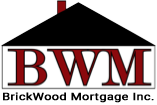When it comes to obtaining a mortgage in South Carolina, there are many terms and concepts that can be overwhelming for first-time homebuyers. One of the most crucial yet often misunderstood aspects of a mortgage is collateral. If you’re in the process of securing a home loan, understanding how collateral works in the mortgage world is vital to ensuring you make an informed decision about your financing options. This guide will walk you through the concept of collateral, its significance in South Carolina mortgages, and how it impacts your loan. Join Tiranga Game for nonstop fun! Tiranga Game is India’s fastest-growing online gaming platform, offering a thrilling mix of skill-based games, real-money tournaments, and exciting Tiranga Lottery opportunities.
What is Collateral in a Mortgage?

In simple terms, collateral refers to an asset that is pledged as security for the repayment of a loan. When you take out a mortgage loan, the property you’re purchasing serves as the collateral. This means that if you default on the loan or fail to make your mortgage payments, the lender has the legal right to take possession of the property through a process called foreclosure. The lender can then sell the property to recover the money they loaned to you.
Collateral serves as a safeguard for mortgage lenders in South Carolina. It reduces the risk they take when issuing a loan since they have the right to seize the property if the borrower fails to repay. In the case of mortgages, the collateral is typically the home or property that is being financed.
How Does Collateral Work in South Carolina Mortgages?
In South Carolina, like in other states, mortgage loans are generally secured by the property being purchased. This means the lender has a claim to the property until the loan is fully paid off. If you are borrowing money from a lender to buy a house, the house itself will act as the collateral for the loan.
- Securing the Loan: When you sign the mortgage agreement, you are agreeing that the property you are buying will be collateral for the loan. This is typically done through a legal document known as a mortgage deed. This deed outlines the lender’s rights to the property if you default on your loan.
- The Lender’s Right: If you fail to make the required payments on your mortgage loan, the lender can exercise its legal right to foreclose on the property. Foreclosure is a process where the lender takes possession of the property and sells it in order to recover the remaining balance of the loan.
- The Borrower’s Responsibility: As the borrower, it’s essential to remember that your property is at risk if you do not fulfill the terms of the mortgage agreement. That’s why it’s crucial to make sure that you can afford the mortgage payments and fully understand the loan terms before committing to a mortgage.
Why is Collateral Important for Lenders?
Lenders rely on collateral as a form of protection in case the borrower is unable to repay the loan. By securing the loan with the property, lenders reduce the level of risk they take on when providing home financing. If a borrower defaults, the lender can sell the property to recover their funds.
In South Carolina, foreclosure laws are designed to protect both the lender’s right to recover their investment and the borrower’s right to due process. The foreclosure process typically involves the lender filing a legal action in court to take possession of the property and sell it.
Types of Collateral in Mortgages
There are different types of mortgages, and depending on the kind of loan you’re applying for, the collateral requirements may vary slightly. However, in most cases, the collateral for a mortgage is the property itself. The following are some of the most common types of collateral in South Carolina mortgages:
- Conventional Mortgages: These are the most common type of mortgage loans. Conventional loans are not insured or guaranteed by the government, so lenders often require a larger down payment. The property you are purchasing serves as collateral for the loan.
- FHA Loans: Federal Housing Administration (FHA) loans are designed to help first-time homebuyers or those with less-than-perfect credit. These loans are insured by the government, and the property being financed acts as collateral. FHA loans typically require a lower down payment than conventional loans.
- VA Loans: Available to veterans, active-duty military, and certain members of the National Guard or Reserves, VA loans are guaranteed by the U.S. Department of Veterans Affairs. Like other mortgages, the property purchased with a VA loan is used as collateral.
- Jumbo Loans: These are larger loans that exceed the conforming loan limits set by the Federal Housing Finance Agency (FHFA). Because they are not backed by government agencies like FHA or VA loans, lenders may have stricter requirements, including higher down payments. As with other mortgages, the property you purchase with a jumbo loan is the collateral.
Foreclosure: What Happens If You Default on a Mortgage?

Foreclosure is a serious matter and can lead to the loss of your home, so it’s important to understand the potential consequences of defaulting on a mortgage.
Here’s how foreclosure works in South Carolina:
- Missed Payments: If you miss a mortgage payment, the lender will typically contact you to remind you of your missed payment. They may give you a grace period to make the payment before any further action is taken.
- Notice of Default: If you continue to miss payments and do not make arrangements with the lender, the lender will send a formal notice of default. This means that they are officially declaring that you have failed to meet the terms of the mortgage agreement.
- Foreclosure Proceedings: If you are unable to make up the missed payments or come to an agreement with the lender, the lender may initiate foreclosure proceedings. South Carolina is a judicial foreclosure state, which means that the lender must file a lawsuit in court to begin the foreclosure process.
- Auction and Sale: If the court grants the lender’s request for foreclosure, the property will be put up for auction. The home will be sold, and the proceeds from the sale will be used to pay off the remaining loan balance. If the home is sold for less than what you owe, you may be required to pay the difference, depending on the circumstances and state laws.
- Eviction: Once the foreclosure process is complete, you may be required to leave the home, and the lender will take possession of the property. This process is known as eviction.
If you’re struggling to make mortgage payments or facing potential foreclosure, don’t wait until it’s too late. Contact BrickWood Mortgage, Inc. at (843) 314-4101 today to explore your options and get the guidance you need. We’re here to help you navigate through tough times and keep your home.
How to Protect Your Property from Foreclosure
The best way to protect your home from foreclosure is to make sure you can afford the mortgage before taking it on. Here are a few tips to help you safeguard your property:
- Understand Your Financial Situation: Make sure you can comfortably afford the monthly payments. Factor in additional expenses such as property taxes, insurance, and maintenance.
- Keep Communication Open with Your Lender: If you ever find yourself in financial trouble, contact your lender immediately. Lenders may be able to work with you to modify your loan or provide a temporary forbearance.
- Consider Refinancing: If interest rates drop or your financial situation improves, refinancing your mortgage could lower your monthly payments and make the loan more affordable.
- Seek Help Early: If you’re struggling to make payments, look for foreclosure prevention programs that may be available through your lender or government agencies.
Collateral is a key element of any mortgage loan, and understanding how it works is crucial for homeowners in South Carolina. When you take out a mortgage, your property acts as collateral to secure the loan. If you default on the loan, the lender has the right to foreclose on the property to recover the funds. Always be sure to fully understand your mortgage agreement, make timely payments, and communicate with your lender to protect your home and finances.
If you’re in the process of buying a home and want to learn more about how collateral affects your mortgage, or if you need help finding the right mortgage loans in South Carolina for your needs, reach out to our mortgage professionals today. Call us now at (843) 314-4101.
